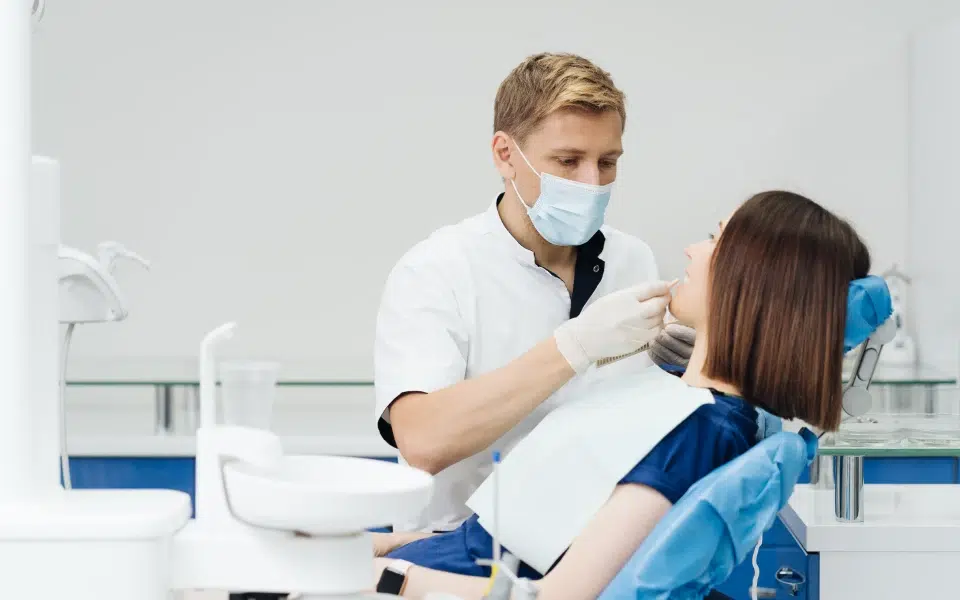In the battle against periodontal disease, maintaining optimal oral hygiene through regular brushing and flossing is paramount. However, advanced stages of gum disease may require additional treatment to effectively tackle the harmful bacteria responsible for the condition. In such instances, the strategic use of local and systemic antibiotics can become a powerful ally in strengthening your periodontal disease treatment plan, providing comprehensive bacteria reduction and promoting the restoration of healthy gum tissue.
Local and systemic antibiotics target and eliminate the harmful bacteria causing gum disease, working in conjunction with non-surgical and surgical periodontal treatments to optimize oral health outcomes. By incorporating antibiotics in your periodontal treatment, you address both the symptoms and the root cause of gum disease, holistically tackling oral health challenges and safeguarding the integrity of your smile. Gaining a solid understanding of local and systemic antibiotics, their application, and their impact on periodontal disease treatment will empower you to make informed decisions regarding your dental care.
Understanding Local and Systemic Antibiotics
In the context of periodontal disease treatment, antibiotics come in two primary forms: local and systemic. Local antibiotics, as the name suggests, are applied directly to the affected area in the mouth, typically in the form of gels, fibers, or microspheres. These medications gradually release over a predetermined period, targeting the specific bacteria in the gum pocket responsible for gum disease. Commonly used local antibiotics include minocycline, doxycycline, and tetracycline.
Systemic antibiotics, on the other hand, are taken orally and work throughout the entire body. These medications can be prescribed in tablet or capsule form, depending on the severity of the periodontal disease and the specific bacteria involved. Popular systemic antibiotics used to treat gum disease include amoxicillin, metronidazole, and clindamycin.
When Are Antibiotics Necessary for Periodontal Disease Treatment?
While antibiotics can be highly beneficial in certain cases, they are not always the go-to option for periodontal disease treatment. Dental professionals will typically recommend antibiotics in the following situations:
- Advanced Periodontal Disease: If non-surgical treatments such as scaling and root planing prove insufficient in managing severe gum disease, antibiotics can be prescribed to further combat bacterial infections.
- Aggressive Bacteria: When the causative bacteria are particularly aggressive or unresponsive to standard treatment methods, antibiotics may be introduced to target and eliminate these hard-to-treat strains.
- High Risk Patients: For individuals with compromised immune systems or underlying health conditions that may exacerbate the effects of gum disease, antibiotics can serve as a proactive measure to prevent complications and support oral health.
- Following Periodontal Surgery: In some cases, antibiotics may be prescribed following surgical periodontal treatment to reduce the risk of infection and optimize the healing process.
The Benefits of Local and Systemic Antibiotics in Periodontal Disease Treatment
Incorporating antibiotics into your periodontal treatment plan can significantly improve your oral health outcomes, offering a range of benefits, such as:
- Enhanced Bacteria Reduction: Antibiotics provide a comprehensive approach to tackling the bacteria responsible for gum disease, working in synergy with other treatments to effectively address the root cause of the condition.
- Prevention of Disease Progression: By targeting and eliminating harmful bacteria, antibiotics can halt the progression of periodontal disease, protecting your teeth and gums from further damage.
- Faster Healing Process: Following periodontal surgery, the use of antibiotics can help promote a smoother, quicker recovery by reducing inflammation and minimizing the risk of infection.
- Improved Overall Oral Health: The combination of effective periodontal treatments and antibiotics can contribute to the restoration of healthy gum tissue, promoting improved oral health and a vibrant, confident smile.
Strategies for Maximizing the Effectiveness of Antibiotics in Your Treatment Plan
To get the most out of your antibiotic treatment, it is essential to adhere to the following best practices:
- Follow Your Dentist’s Instructions: When prescribed antibiotics, follow all dosage instructions and recommended treatment durations provided by your dental professional. Failing to adhere to these guidelines may diminish the efficacy of the medication and prolong the healing process.
- Maintain Good Oral Hygiene: Continue practicing diligent oral hygiene, including regular brushing and flossing, to support the elimination of harmful bacteria throughout the treatment process.
- Attend Regular Checkups: Schedule regular dental checkups to monitor your progress and make any necessary adjustments to your treatment plan.
- Communicate Potential Allergies: Inform your dentist of any allergies or medications you are currently taking to prevent adverse reactions or interactions with the prescribed antibiotics.
Empowering Your Periodontal Treatment with Antibiotics
The strategic incorporation of local and systemic antibiotics in your periodontal disease treatment plan can significantly enhance your oral health outcomes, addressing the root cause of gum disease and allowing you to reclaim a healthy, radiant smile.
By understanding the role of antibiotics in periodontal treatment and following the guidance of your dental professional, you can embrace a comprehensive, proactive approach to oral health management, ensuring optimal results and long-lasting benefits.
To further explore the use of antibiotics in periodontal care and disease treatment and discuss your specific dental needs, schedule a consultation with Dallas Periodontics and Dental Implants today and begin your journey toward a healthier, more confident smile.

